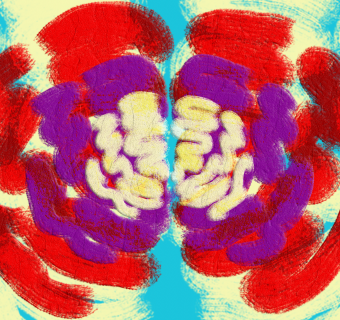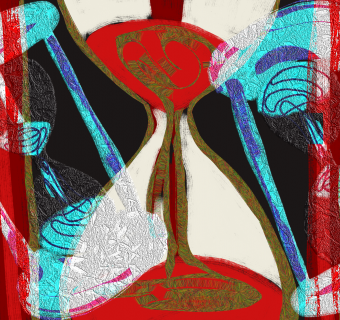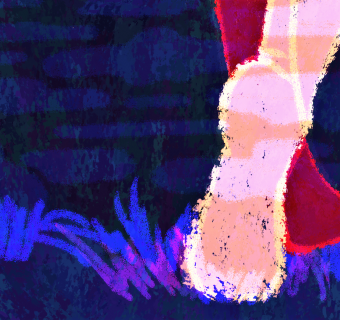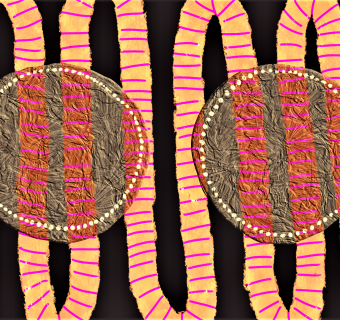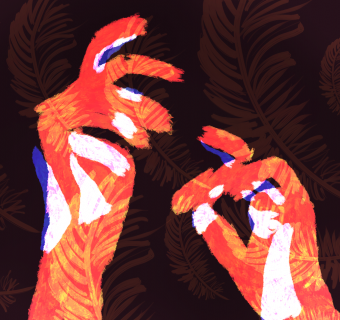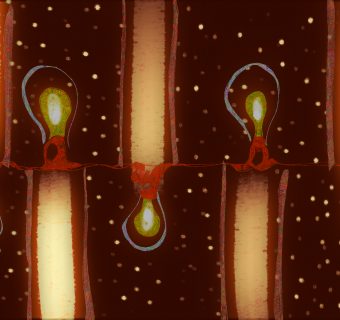Each year in May, the Women’s Center gathers its graduating interns to thank them for the impact they’ve had on the UVA community. As they look back on their experiences working with the center, they offer some terrific insights that we at Iris want to share with you.
First of all, thank you all for letting me share with you today. I cannot express how flattered I am to be standing up here considering the incredible perspectives and talents that exist in each of the many Women’s Center interns. When you look around at my fellow interns, you are seeing the future. Each of them is a leader, a changemaker discontent with the current status quo and driven to do something about it. I’m involved in a lot of groups on grounds (arguably too many), and that is not something I can say about many of them.
My pathway to becoming a Body Positive Program Intern started before I even knew about the Maxine Platzer Lynn Women’s Center. I started walking it before I even decided to attend UVA, truthfully, long before I even applied to UVA or participated in a single activity that got me into this institution to begin with. When reflecting on how I got to the women’s center and my specific program, I think of three catalysts: my parents, my athleticism, and my best friends.

First, I grew up thinking that everyone’s mom worked so hard that she was awake before you got on the bus and often home after you went to bed. I thought that everyone’s dad worked from home, cooked dinner, and drove you to soccer practice. I fundamentally didn’t understand traditional gender roles because I lived their contradictions. Both my parents built their own businesses. Both my parents attended every game, performance, and concert. Both made sacrifices for our family, personifying hard work and tenacity to provide opportunities for me and my sister. Both made sure we never doubted our capabilities, that obstacles were there to be surmounted not to stop us, and that being girls meant nothing different in their expectations for us and what we could achieve.
This upbringing (and an early gift for sass and sarcasm) ensured that when someone used “like a girl” as an insult on the playground, my clapback was both immediate and evidence-backed. My parents raised me to be proud of my womanhood, but at the same time to understand it as just another piece in the multifaceted definition of my identity. As such, as I matured and realized that not everyone shared that mentality, that the reality I increasingly became aware of didn’t meet this expectation of equality, it was like being on the playground again and again. Finding the Women’s Center, with the mission of providing UVA students with the toolkit to work towards social justice, allowed me to channel that frustration and work towards the gender equality I was raised to believe was the norm.
Second, as an athlete, my body was judged from a young age. “You’re too tall to be gymnast,” “you’re too thick to be a swimmer,” or “you’re too big to be fast,” all assessments rendered about me and to my face before the age of 10. Growing up I was unable to look at my thick thighs and think of the power they generated on the soccer field, instead focusing on my inability to wear boyfriend jeans. My broad shoulders were neither something that enabled me to better body defenders off the ball nor were they what allowed me to set backstroke records—they were what “prevented” me from wearing strapless dresses or tank tops. 
I couldn’t see the unique abilities that my body type provided me—the ability to play soccer at a national level or to sign up for a 5K on a whim. It was only something that made me different—something that made me the “submarine” or “tank” that those elementary school boys delighted in naming me. Even my general practitioner perpetuated the unhealthy body ideal, repeatedly assessing me as obese despite the fact that I could run a sub-7 mile.
It took years to redefine my relationship with my body, to perceive it as more than a tool to be sharpened and honed based on my trainers’, coaches’, or society’s definition of what an athlete looked like. I often wonder how many books I could have read with the time I wasted fixated on not appreciating my body. Maybe I would have read Harry Potter a lot earlier than after my first year in college, who knows. This experience actually drove me to apply to the Body Positive Program, to surround myself with people who shared that frustration and were doing something to upend it.
Finally, perhaps the strongest catalyst behind my presence standing up here today was my childhood best friends. In my totally and completely unbiased opinion, my best friends hung the moon and the stars. And I never felt so helpless than watching the pressures to meet this fictionalized beauty and athletic ideal converge to convince my incredible friends that they were anything but beautiful. Watching my friends, all gorgeous and accomplished in their own diverse ways, decide that various forms of distorted behaviors with food and exercise were the solution, watching them go through various forms of rehabilitation or having to quit the activities that had previously given them purpose, watching them continually struggle with building a healthy relationship with food, their bodies, or themselves—I’ve never felt more helpless, more frustrated, and more enraged.

These experiences motivated me to join the Body Positive Program. According to the application I filled out nearly two years ago, “I want to be a part of a program that helps not only people like my close friends with serious illnesses but also individuals just struggling for self-acceptance in the blanketing shadow of the artificial construct of an ideal body type. I want to help celebrate both everybody and every body. To create a culture of acceptance and respect for where people are in their relationship with their body, their physical health, and any where in between.” And I did.
Words cannot possibly convey how thankful I am for the Women’s Center and the incredible people who comprise it. As an intern, I studied eating disorders and exercise abuse in young adults, hoping to understand how these concerns manifest or are exacerbated by the collegiate environment. All Body Positive interns are trained to facilitate evidence-backed intervention discussions that reduce participants’ body dissatisfaction and decrease the onset of disordered behavior. As a senior intern, I led large group educational presentations, providing techniques to combat these influences and resources for those struggling.
As a future educator, this is a resource and knowledge base I can now access for my students and the young women of my community. As an intern at the Women’s Center, I educated my peers against the harmful appearance ideals so that they would not waste the mental energy that should be devoted to learning, challenging themselves, pursuing their goals, developing relationships, on pursuing this viciously fictitious ideal. I plan on continuing that work with my students as well.

While I’m certainly thankful for the public speaking, researching, and facilitating skills developed through this program, it’s the relationships I will without a doubt miss the most. Thank you for widening the lenses of my perspectives, for challenging my understanding, and for supporting me even though I often made our weekly “highs and lows check-in” last much longer than it needed to. Thank you for teaching me that saying no is not only okay but necessary. That to be my best self and the best leader, I need to understand my own boundaries and respect them. Thank you for our coffee chats, for your empathy and creating an environment in which stereotypically responding “Oh, I’m fine” when someone asks how you are doing was not going to cut it.
Thank you for teaching me the value of leading with care and compassion. Thank you for providing a leadership experience that actually steered me towards the decision to become an educator and get on the frontlines to achieve the education equity I want to see in the world. And thank you to the Women’s Center for making all these relationships possible. For providing the ideal work environment. For providing empowering role models, always willing to open doors and let you glean some advice from their incredible careers.
And to the chocolate bowl in the Room to Breathe. My eternal thanks for that.


